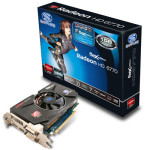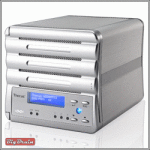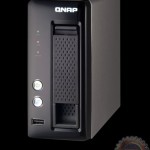Operating System Load Times Once again we are going to see the performance of real world usage except this time in regards to the amount of time it takes to load the operating system (Win7) using the three different scenarios. The lower time of loading is best. The SSD Alone only slightly outperforms the SSD/HDD combo inside of the HyBrid …
Read More »Search Results for: Type A
Sapphire Radeon HD 6770 fleX 1GB Graphics Card Review @ eTeknix.com
Video Cards are an expensive part of the system building process and/or can be a large expense in the upgrade budget. With E3 2011 going on this weekend a lot of earth shattering titles are being shown and most computer enthusiasts want to be able to play the games in their full technological glory, including AMDs immersive Eyefinity technology, however …
Read More »Thecus N3200XXX Network Attached Storage Server Review @ Bigbruin.com
The more data that the average home or power user collects, the greater the need is for some type of mass storage device to protect it all. The Thecus N32000XXX network attached storage server is very good at addressing this situation. With compatibility for Mac, Linux, and Windows, it makes sharing data and printers extremely easy. With its flexible configuration …
Read More »LSI 9265 MegaRAID Supplementary Review: The Beauty of CacheCade!
Today we are going to take an in-depth look at CacheCade, a new approach to storage systems that allows the perfect fusion of HDD capacity and SSD speed. With many large databases and enterprise users ‘caught in the middle’ with large HDD arrays, yet needing more performance from their existing infrastructure, CacheCade is a great option that allows the best …
Read More »LSI 9265 MegaRAID Cachecade Supplementary Review: Nuts and Bolts
One can improve the performance of small files by up to 50X which for certain types of setups can reap HUGE results. Webservers, File Servers, and OLTP (Online Transaction Processing) will benefit tremendously. There is definitely a large group of users that would be very interested in combining the positive aspects of both solutions (HDD/SSD) into one cohesive unit. How …
Read More »LSI 9265 MegaRAID Cachecade Supplementary Review: Maximizing Benefits
After a period of time the SSD cache is going to be accessed quite frequently, and this has other advantages. Right now Cachecade is a read-only layer, so it might not be easy to understand the tremendous benefits that it has in regards to write performance on the HDD array. By freeing up the HDD from the most constantly addressed …
Read More »LSI 9265 MegaRAID Cachecade Supplementary Review: MLC vs SLC
CacheCade performance is much more dependent on SSD read performance than on SSD write performance, so the performance depends upon the size of the SSDs and the total size of the data hot spots. If there simply aren’t many hot spots on the array being accelerated, you will not gain as large of a performance gain. Once again, in our …
Read More »LSI 9265 MegaRAID Cachecade Supplementary Review: Hot-Warm-Cool-Cold
Zoned Setup- A more complex read pattern that is much more demanding of the caching algorithm. The overlapped cold-cool-warm-hot data regions IOMeter benchmark is the most stressful on the hot data caching algorithms and so results typically reach performance in the 30,000 to 45,000 IOPS range. The base array in this scenario is generating around 500 IOPS before acceleration, which …
Read More »LSI 9265 MegaRAID Cachecade Supplementary Review: Conclusion
ADDED VALUE During testing, one thing that struck me was the sound of the drives, once they were loaded with information and being tested. The 4k random read is one of the hardest types of file access for any storage solution, especially Hard Disk Drives. At the beginning of each test, sitting in the room I could hear the sound …
Read More »QNAP TS-119P+ Single Bay HOME/SOHO NAS Review @ Tweaknews
The TS-119P+ continues QNAP’s reputation of making fast, reliable NAS units for all types of environments. This little one-bay offering is perfect for a home or small office with simple storage and backup needs. And as your network grows, you can rest easy knowing the NAS will be able to keep up thanks to impressive hardware specs and support for external drives …
Read More » The SSD Review The Worlds Dedicated SSD Education and Review Resource |
The SSD Review The Worlds Dedicated SSD Education and Review Resource |




